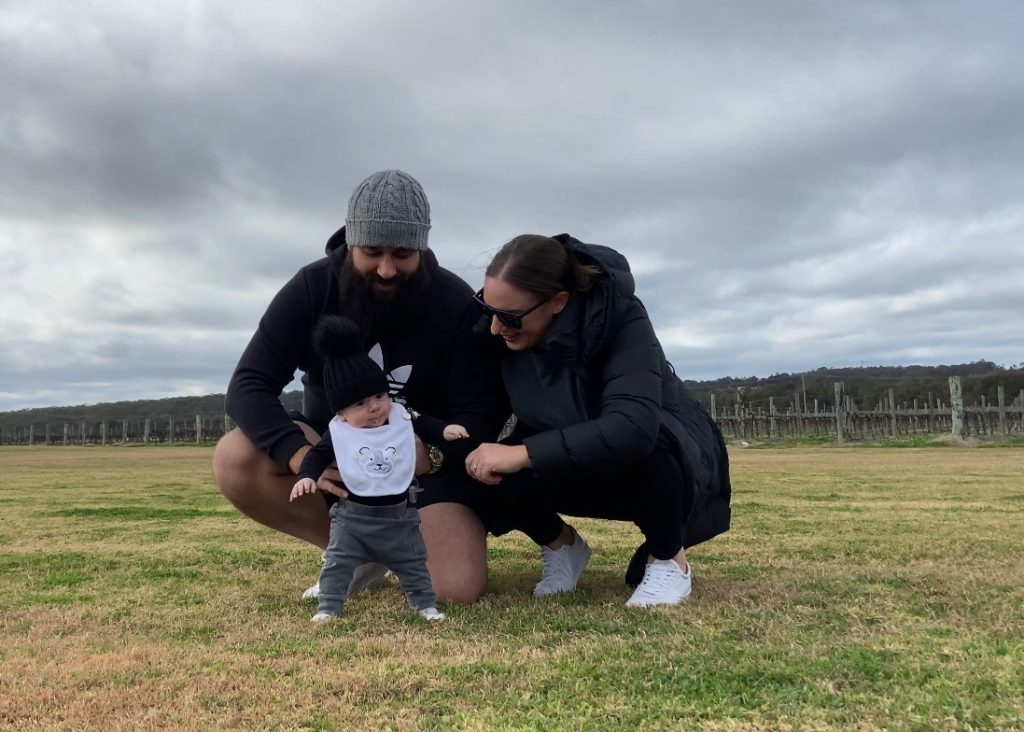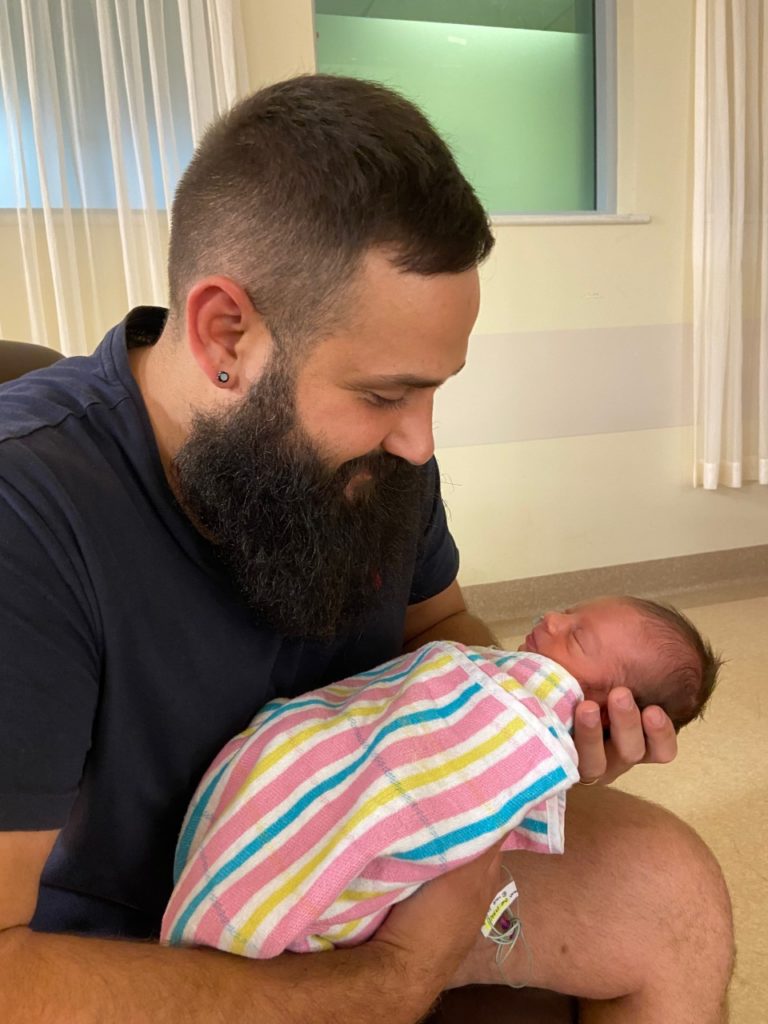Will’s first Father’s Day after beating blood cancer
This year, Will Costan will be celebrating his first Father’s Day, as well as his third year of being blood cancer free.

Will was diagnosed with blood cancer on Tuesday 30 May 2017 after experiencing severe fatigue and flu-like symptoms.
“I received a call from pathology at 11pm saying to go straight to hospital emergency,” remembers the now 33-year-old from Sydney.
“They couldn’t tell me what was wrong at the time, but afterwards I found out that I had zero functioning white blood cells.
White blood cells fight infection and make up about 1% of your blood. There are different types of white blood cells (also known as leukocytes or WBCs) and they each have a specific function, although they all work together to protect your body.
Will was diagnosed with a type of blood cancer called acute lymphoblastic leukaemia (ALL), which affects the blood and bone marrow.
“At 4am I was told by an emergency doctor that I had blood cancer and would be seen by a haematologist later that morning,” he said.
“My dad was with me and we just sat for hours in total disbelief, waiting to hear what that actually meant for me.”
Will’s haematologist was running the ALLG ALL06 clinical trial, which is investigating the use of a children’s chemotherapy protocol in adults under 40 years of age. Will decided to take part.
“The trial involved nine months of intensive induction chemotherapy and then two years of maintenance chemotherapy,” said Will.
Induction is the first phase of chemotherapy treatment. The goal is to clear the blood of leukemia cells (blasts) putting the patient into remission.
“I was told I was in remission about three months after my diagnosis. It was a real mental battle from then on trying to understand why I had to continue pumping poison into my body when I was technically better.
“But that’s not the way the treatment works and if I was to have a shot at beating this, I knew I had to keep going.”
Will was diagnosed just a year after he married his partner, Sarah.
“We wanted a family, but my doctor said it could take up to seven years after treatment to conceive naturally, so my sperm was collected and frozen before starting treatment,” he said.
“But Sarah ended up falling pregnant naturally and we welcomed our son, Leo, earlier this year.”
Being a dad has given Will renewed perspective.

“It’s the best feeling ever and he’s my number one priority,” he said.
“He’s always on my mind and another thing to drown out the bad thoughts about blood cancer.”
With the arrival of Leo, Will knew he had to get on top of his mental health for himself and his young family.
“I contacted the Leukaemia Foundation and have had counselling sessions to help me process what I went through,” he said.
“I have a lot more to lose now and I know I have to be proactive if I want to mentally recover.
“I had to let go of the things that weren’t within my power and only concern myself with the things that I can control.
“You can’t let the trauma of your treatment or fear of relapse rule your life.”
Will is in remission, has returned to his construction job part-time and just finished building his own home.
“I look back to when I was first diagnosed and what I consider my worst day during treatment,” reflected Will.
“Seeing how far I’ve come I do think to myself ‘you’re not doing too badly’.
“To any young guys out there who have been diagnosed and want to have a family – just know it is possible.
I’m living proof that you can get through it and have the life you thought blood cancer would take from you.”
Need to talk? We encourage you to care of your own mental health and wellbeing by calling 1800 620 420 to speak with a Blood Cancer Support Coordinator.
September is Blood Cancer Awareness Month, and this year the global theme is #ThisIsBloodCancer. There are lots of ways you can get involved or help spread the word about blood cancer here.
Last updated on September 6th, 2021
Developed by the Leukaemia Foundation in consultation with people living with a blood cancer, Leukaemia Foundation support staff, haematology nursing staff and/or Australian clinical haematologists. This content is provided for information purposes only and we urge you to always seek advice from a registered health care professional for diagnosis, treatment and answers to your medical questions, including the suitability of a particular therapy, service, product or treatment in your circumstances. The Leukaemia Foundation shall not bear any liability for any person relying on the materials contained on this website.